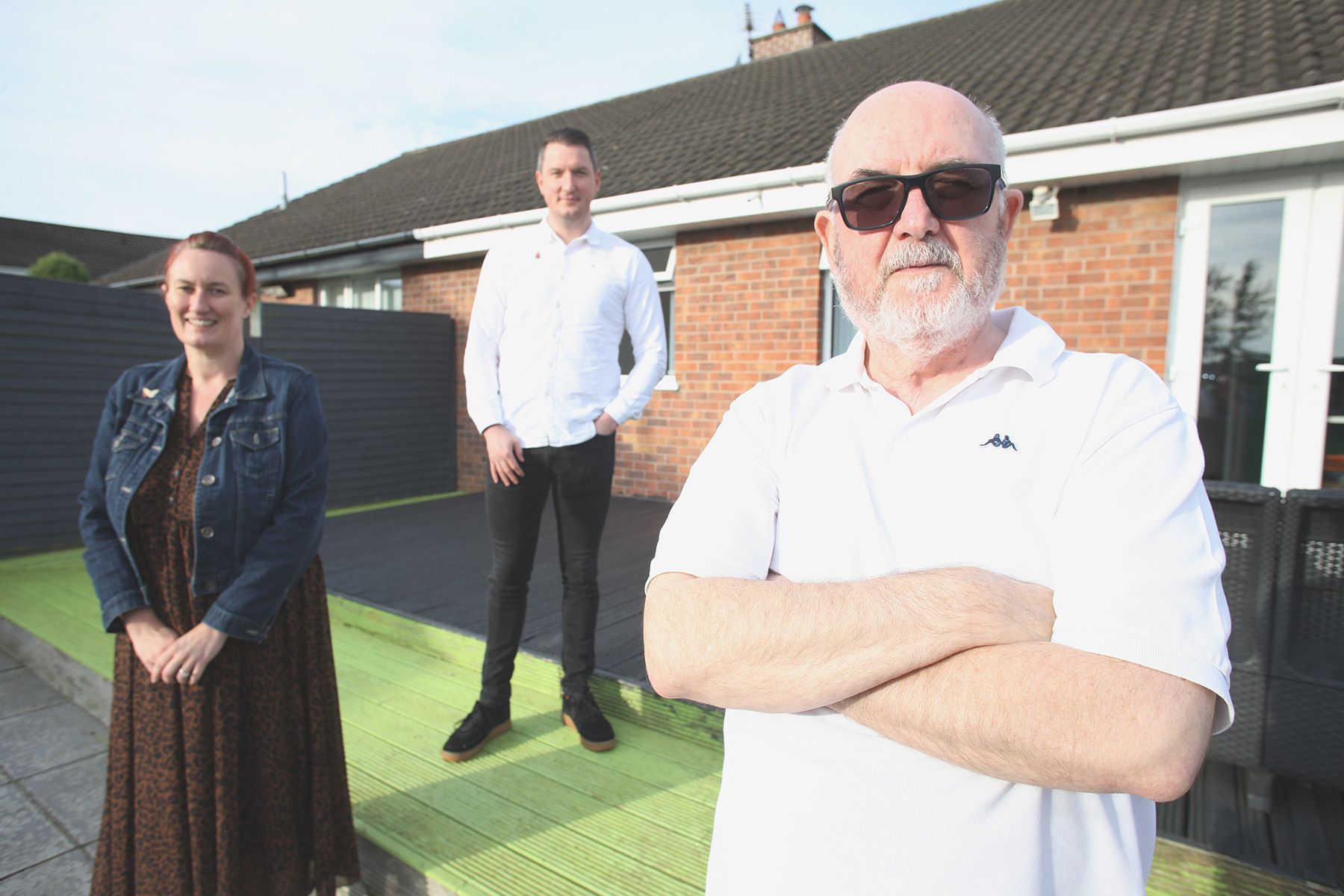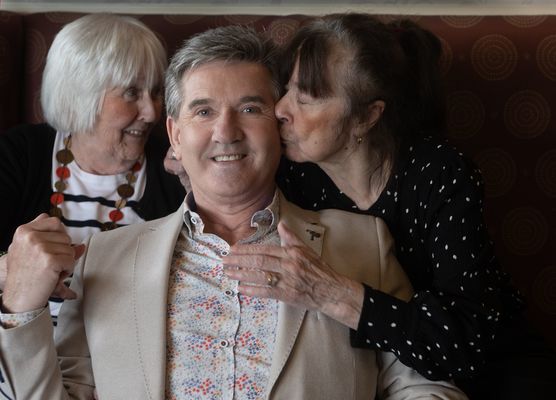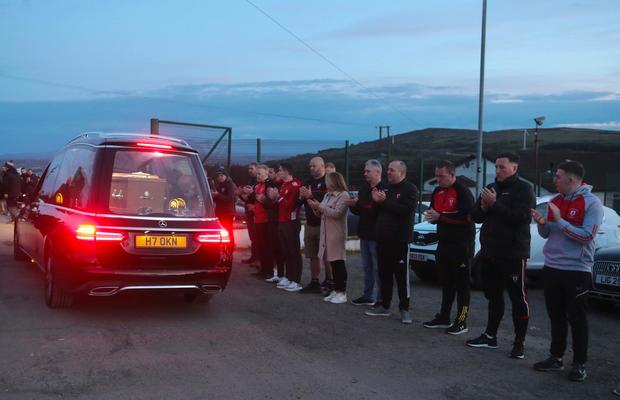A NORTH Belfast man, who is recovering from a recent kidney transplant, has welcomed progress on soft opt-out organ donation legislation, which passed its second stage in the Assembly on Monday.
Michael Goodman (62), a Sinn Féin councillor for Glengormley, received his transplant three weeks ago, thanks to a donation from his step-daughter, Tracy Cunningham.
ORGAN DONATION WEEK
— Cllr Michael Goodman SF (@macgiolla) September 19, 2021
I am three weeks post-transplant and had the heart to heart conversation with my stepdaughter Tracy five years ago. We're both recovering well but without that conversation, my future would be looking very different, with potentially year's of dialysis. pic.twitter.com/b0zb0xIK8X
Now recovering at home, Michael wants more people to know about the subject during this week – Organ Donation Week.
If passed, the new legislation would mean people in the North automatically become organ donors unless they choose to opt out.
The bill, which was approved 69 votes to six, will now go before the health committee.
The DUP had previously blocked attempts to pass a bill, but agreed to allow it to proceed through the Assembly after meeting organ donation campaigners in June.
However, with the DUP threatening to collapse the Assembly over the Northern Ireland Protocol, uncertainty looms over the legislation's passage.
Speaking to the North Belfast News, Councillor Michael Goodman said: "Organ donation is something families need to be discussing at the earliest opportunity possible.
"It is not an easy decision. There is a lot of discussion and consultation but it is an entirely voluntary process. Donors can back out at any time.
"The more information and better information people have, the more positive organ donation and transplants can be.
"You are potentially saving someone's life and certainly improving the quality of life for people.
"In my own experience, the process was very smooth, both with myself as the recipient and my donor.
"I had a live donor who was out of hospital after just three days. I was out of the hospital within five days and up on my feet again.
"The care in the hospital and the aftercare has been second to none. I couldn’t fault how well I have been monitored since my transplant, especially in the midst of the Covid pandemic."
Michael is grateful to Tracy for the donation and says it will improve his quality of life.
"I am three weeks post-transplant and had the heart-to-heart conversation with my stepdaughter Tracy five years ago," he continued.
"We're both recovering well but without that conversation, my future would be looking very different, with potentially years of dialysis.
"The potential for transplants to improve the quality of people’s lives is phenomenal," he continued.
"To prevent transplants from happening because of a lack of information or awareness on the process is very short-sighted. It will save the health service massively in the long term.
"These legislative changes could potentially have a major impact of health and wellbeing in the community for the better.
"On Organ Donation Week, my message to people is to inform themselves of what organ donation means and the impact to themselves and their families and the impact it could potentially have on a transplant patient.
"I hope people can see the benefits that they can bestow on life-threatening or life-limiting patients."
Speaking after the vote, Health Minister Robin Swann said: “Today is another positive step forward in what has been a long journey for all involved in the organ donation process.
Health Minister Robin Swann welcomes progress on the organ donation bill #OrganDonationWeek
— Department of Health (@healthdpt) September 20, 2021
Read➡️https://t.co/CGkddiyoQy pic.twitter.com/b2ceyIEEXl
"It has been a privilege to bring the Second Stage of the Bill to the Assembly today and very timely that Assembly colleagues have agreed to the motion on the first day of Organ Donation Week.”
“In Northern Ireland we have a good record of organ donation, which we should rightly be proud of. However, with so many local people waiting for a transplant, we must do all we can to increase the number of organs available for transplantation.
“The Organ Donation Bill, which we hope will be enacted in Spring 2023, will strengthen the current legislative framework around organ donation and will increase the current rate of consent in the small number of cases in which it is clinically possible for organ donation to proceed after a person’s death. Doing so will increase the overall number of donors, and ultimately the number of lifesaving organs available for transplantation.”









